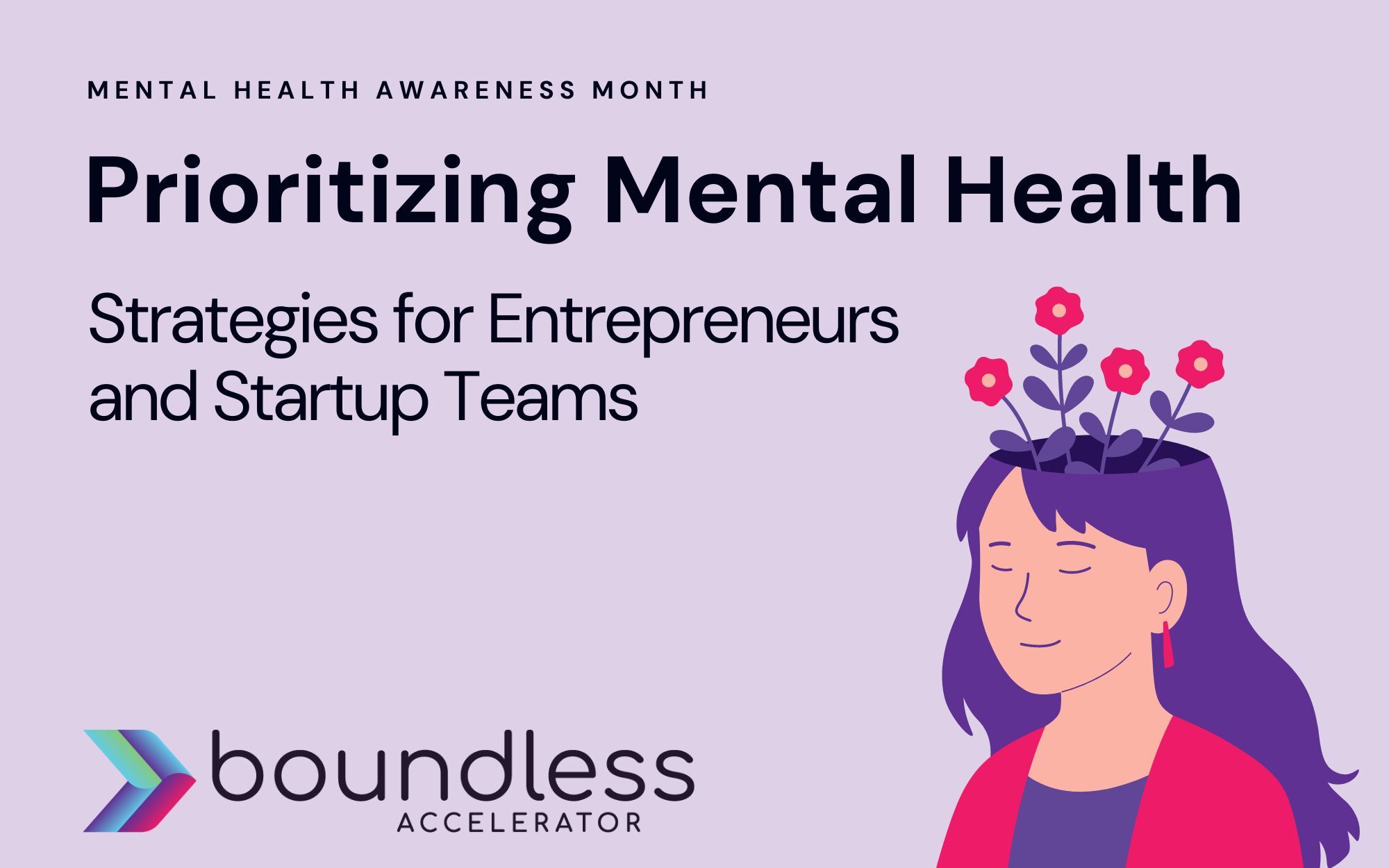Written by: Tasha Budhai
In the dynamic and busy world of business ownership, many entrepreneurs eagerly dedicate considerable time, energy, and effort toward realizing their dreams. Alongside their passion and commitment, it is important to prioritize mental health to ensure a balanced and sustainable journey to success.
Starting a business is one of the most wonderful and exciting things an individual can do. With hard work, consistency, and dedication, the success of a business is extremely rewarding, and a dream come true.
Unfortunately, even amongst the beauty of entrepreneurship, there is a significant link between business success and mental health challenges among many entrepreneurs.
According to a 2023 study done by BDC – Bank for Canadian Entrepreneurs, 45% of Canadian business owners were experiencing mental health challenges every week.
The truth is that poor mental health and self-care can hurt both you and your business. Good mental health is crucial for successful businesses and the progress and well-being of the entrepreneur. The better your mental health is, the better you can run your business, assist others, make decisions, etc.
According to the ICD-11 of the World Health Organization, occupational burnout is recognized as a medical condition. It is a work-related phenomenon resulting from chronic workplace stress that has not been successfully managed.
It is all too common for entrepreneurs to feel stress and burnout while on the job. Many do not even realize this until it reaches a boiling point. This can further lead to greater mental health challenges. The key is to recognize the signs of stress and burnout beforehand to best care for oneself.
Some of these signs include:
- Feeling constant fatigue
- Feelings of helplessness or being trapped
- Feeling cynical or doubtful
- Feelings of isolation or detachment
- Frequent procrastination
- Weaker immune system, frequent illness
- Aches and pains
While prioritizing mental health can be challenging, it is essential for both personal well-being and business success. Better mental health leads to running a better business. While it may be difficult, dedicating time to self-care and mental healthcare is both necessary and worthwhile.
Here are some strategies to help prioritize mental health.
Back to the basics
Maintaining basic bodily functions and self-care is crucial. Often, we neglect these fundamental needs, not realizing how much they impact our overall well-being. Addressing these basics can significantly improve mental health.
The three most important aspects of a healthy human are:
- Healthy eating
- Regular exercise
- Adequate sleep schedule
Though they may seem simple, these aspects are vital for enhancing mental health. Taking care of your body internally and externally can prevent many issues and promote a healthy, happy life.
Lean on peers
Sometimes when we are buried in our work, we tend to push others away. However, leaning on others can help ease the burden of work and provide support for yourself. Be sure to reach out to friends, co-workers, or someone you trust to lean on during times of need.
Nurture your relationships
To further on the above, maintaining both work and personal relationships is of utmost importance. It is easy to get carried away in our dreams and goals, and we often neglect others and isolate ourselves from human connection. It is crucial to nurture and maintain your relationships both inside and outside of the workplace. Having a good support system will aid you in your mental health and work skills.
Work-life balance
It is important to balance work and personal life. You can do this by setting strict boundaries for yourself and others and ways to separate yourself from the office. For example, you can set a boundary to only work on work tasks during work hours and not bring your work home with you. Another example is setting a designated time for people to reach you or having different technologies for work vs. personal use.
Mindfulness and self-help
Self-help and mindfulness are wonderful ways to improve your mental health and help with stress. There are many self-help books, podcasts, audios, visuals, and other multimedia available for the type of help you are interested in. For example, many people practice daily journaling to log their day, release emotions and track triggers and patterns. Another example is muscle relaxation and breathing techniques, often used in cognitive behavioral therapy practices. In some extreme cases, you may need to reach out to a mental health professional or doctor if you are reaching a point where you cannot cope.
Implement support within your business
If you are feeling this way, chances are your employees may be feeling the same way. The truth is, we can never really know how something will affect us, nor can we always prepare for it. We can only do the best we can, and one way of doing so is by implementing mental health resources, support, and policies within your business. That way, there is help readily available and you can earn the trust and respect of those who work for you. The happier your employees and you are, the better your business and customer service are going to be.
If you are interested in further resources to assist your needs, the BDC has more resources for entrepreneurial well-being and a directory for mental health tools and support, as well as Inward Strong, another great platform that bridges the gap in mental healthcare access.

